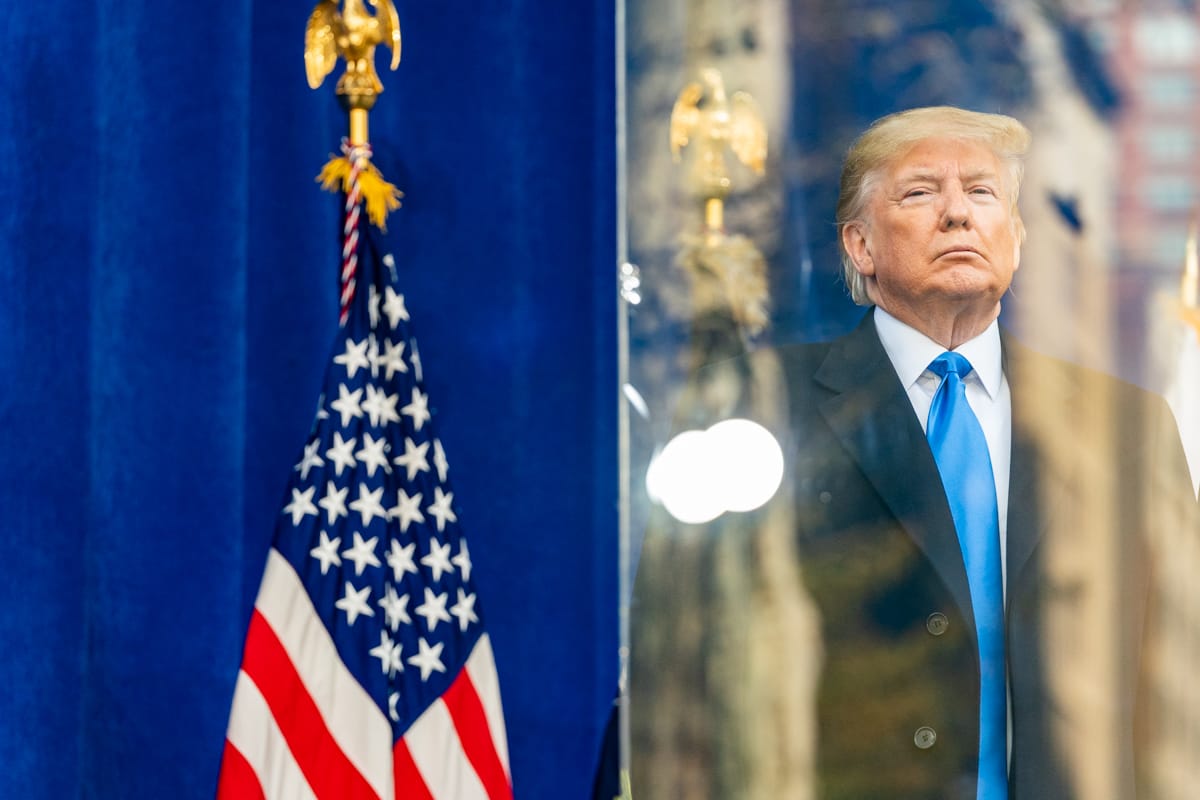Leaders make history, but not in circumstances of their choosing. One of us is a former Pentagon insider during the years of the Barack Obama presidency and knows that even well-intentioned leaders can make chillingly cold-blooded assessments about what ought to be done by the most powerful state in the world. A high rate of targeted assassinations and extra judicial drone strikes became synonymous with the Obama era.
Yet any US administration is the sum of its parts and not just the actions of the buck-stopper in chief. Presidents have no shortage of advisors, some of whom are capable of independent action and thought, as we fortunately saw during Trump’s presidency.
There is no guarantee the proverbial adults in the room will be able or available to constrain Trump next time, though. On the contrary, the “Make America Great Again” movement has spent the Biden years building a policy cadre to implement the far-right agenda that was only a glimmer in Steve Bannon’s eye during the Trump years.
“Normally”, however, the so-called Blob, or the enduring foreign policy establishment that helps to shape and enact any administration’s policies, is seen by its defenders as “a storehouse of accumulated professional wisdom, providing intellectual ballast to the ship of state”. But being at the centre of great events in the most powerful country in the world is not simply intoxicating and good for the self-esteem; it’s also a profoundly important source of identity and belonging. Numerous studies have detailed how identity formation, membership of in-groups, and commitment to a shared worldview can shape the collective behaviour of individuals through socialisation processes.
There’s also the question of career advancement. Failing to get with the program or being seen to be unserious can be antithetical to the whole raison d'être of being a Washington – or Canberra – insider in the first place. Policy networks are ultimately made of people, some of whom are friends. The costs of non-conformity can be manifold, and not just for the individual.

The dangers of group think and unaccountable decision-making in grand strategy have been well understood since the Cuban missile crisis. Any doubts about those lessons for relationships across borders between allies should have been dispelled by the Iraq war.
The key question is why some countries – the United States is obviously the most consequential and the one we know most about – continue to make bad strategic decisions? To be sure, the United States is not the only or even the worst offender, as Vladimir Putin reminds us, but America, with the support of its trusty allies such as Australia, is supposed to be the indispensable basis of strategic stability.
It’s not as if there aren’t plausible-looking alternatives to the sort of “realist” thinking that dominates strategic policy the world over, and which has got us to where we are today: thinking about the possibility of World War III, when we ought to be collectively thinking about how to fix the climate crisis. The much-invoked “international community” isn’t working terribly well.
Arms control agreements, the provision of global public goods, a ban on supplying weapons to despots and non-democrats, and seriously trying to address global inequality are just some of the initiatives that might make an enormous difference to the material and psychological reality we all inhabit.
But even considering such ideas – let alone acting on them – seems literally unthinkable for the insiders who make decisions, no matter how inappropriate or implausible they may be. The quintessential illustration of this possibility in an Australian context is the AUKUS agreement and the long-term commitment to buy nuclear-powered submarines, that may never arrive, will almost certainly cost more than we were led to believe, and won’t deter China anyway.
Even a former prime minister, Paul Keating, has been unable to pierce the Canberra bubble, despite the fact that the policy was dreamed up by the Labor Party’s political opponents. While Keating and other retired Labor luminaries may have a point, it is striking that policymakers rarely take independent positions when they are actually in office.
One thing Donald Trump cannot be accused of is slavishly following the conventional wisdom. His first presidency was distinguished by impetuosity and uncertainty. If he wins the forthcoming election, he will be better prepared for office, and so will his growing team of foreign policy advisors.
Detailed plans have been developed to overhaul the institutions of governance, especially as they apply to foreign and security policy. It is entirely possible that the United States may install a very different policy elite with very different ideas about domestic and foreign policy.
This would inevitably have profound implications for allies such as Australia and undermine the implicit bipartisan consensus that currently underpins much foreign and strategic policy. We may soon find out whether Canberra’s strategic and foreign policy elites can cope with destabilising change when it is generated by the notional bedrock of Australian security. Who knows, perhaps they’ll even be open to a few new ideas, too.

